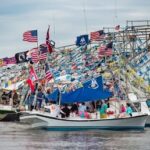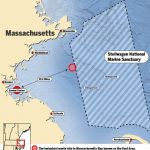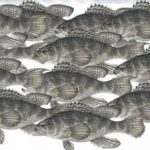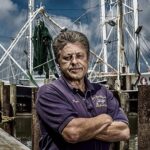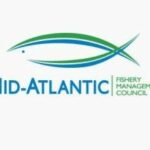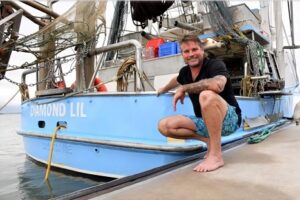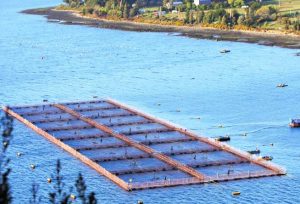Monthly Archives: November 2016

“Fire in the Water” – Book about history of commercial fishing in Florida published
Through firsthand accounts, “Fire in the Water” chronicles an exciting and unique slice of early Florida coastal history that might have otherwise been lost. It was written by Terry L. Howard and Donald E. Root, and was released by Adventure in Discovery, Jupiter, on Nov 7. Howard and Root will be at Vero Beach Book Center, 392 21st St. Vero Beach, on Nov 28 at 6 p.m. for a book signing. Using rare historical photos and firsthand accounts of five survivors, this book chronicles waterfront and commercial fishing life on Florida’s east coast and along the Indian River Lagoon. It centers on Cape Canaveral and Fort Pierce from early in the 20th century to the 1994 Florida net ban. It is filled with colorful sea stories and memories of earlier times. Howard and Root draw from their own commercial fishing experiences. Read the rest here 13:36
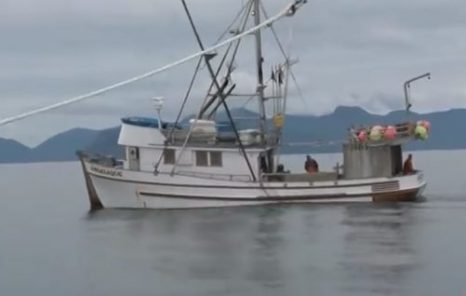
If you are tired of the morning commute and office life, watch this salmon troller working and start packing.
Almost everyone who has ever fished has wanted to make money fishing. Some of these people become guides, some fish tournaments, but a special breed become commercial fisherman. There are many different types of commercial fishing but some of the most skilled and unique are the salmon trollers. Instead of nets, trollers use an expanded version of the hook and line method. The type of troller in the video is a power troller. They use hydraulic power to raise and lower gurdies with steel wire that multiple hooks are attached to. Power trollers are allowed to use four lines total and as many hooks as they want. Trolling wire is marked at 1, 1 1/2, or 2 fathom intervals where the leaders are snapped on. The four lines will have a mixture of bait, metal spoons, plastic hoochies, and plugs attached depending on a myriad of factors including target species, depth, and the fisherman’s personal preference. I should note before everyone buys plane tickets, that you can’t just come up and start fishing. Video, read the rest here 12:49
Sockeye forecast adds concern to Board of Fisheries process
 Upper Cook Inlet salmon fishery stakeholders should be concerned with the Alaska Department of Fish and Game’s 2017 sockeye forecast for many reasons — not the least of which is that the predicted low harvest will inject even more economic and allocation concerns into the debate when the Board of Fisheries meets in February. This past week, the Alaska Journal of Commerce reported that Fish and Game is forecasting a return of 4 million sockeye salmon, with an expected commercial harvest of 1.7 million — about 1.2 million fish less than the 20-year average harvest. Based on 2016 prices, a harvest of 1.7 million sockeye would be worth $10.4 million to Upper Cook Inlet commercial fishermen, which is roughly half the value of this year’s harvest of 2.4 million fish. For the fish board, which sets fishery regulations, seeing a low sockeye forecast ahead of an Upper Cook Inlet meeting is akin to the economy taking a dive right before a presidential election. Each side will have its own theory as to who or what has caused the decline — and that certainly will color the debate at the Board of Fisheries meeting. Read the rest here 09:39
Upper Cook Inlet salmon fishery stakeholders should be concerned with the Alaska Department of Fish and Game’s 2017 sockeye forecast for many reasons — not the least of which is that the predicted low harvest will inject even more economic and allocation concerns into the debate when the Board of Fisheries meets in February. This past week, the Alaska Journal of Commerce reported that Fish and Game is forecasting a return of 4 million sockeye salmon, with an expected commercial harvest of 1.7 million — about 1.2 million fish less than the 20-year average harvest. Based on 2016 prices, a harvest of 1.7 million sockeye would be worth $10.4 million to Upper Cook Inlet commercial fishermen, which is roughly half the value of this year’s harvest of 2.4 million fish. For the fish board, which sets fishery regulations, seeing a low sockeye forecast ahead of an Upper Cook Inlet meeting is akin to the economy taking a dive right before a presidential election. Each side will have its own theory as to who or what has caused the decline — and that certainly will color the debate at the Board of Fisheries meeting. Read the rest here 09:39
Coast Guard Sector Los Angeles/ Long Beach Coast Guard Radios Aren’t Working — Public Advised to Contact Them By Phone
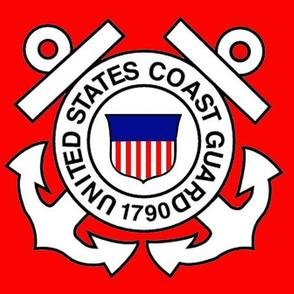 LOS ANGELES − Coast Guard Sector Los Angeles-Long Beach is experiencing a temporary degradation in channel 16 VHF/ Radio communication capabilities throughout the Santa Barbara and Channel Islands areas. Communication pathways have been impacted due to loss of service through Bald Mountain Radio Tower Range. All mariners operating in the Santa Barbara or Channel Islands area are urged to contact the Coast Guard through alternative means. The main line of communication for Coast Guard Sector Los Angeles/ Long Beach will be (310)521-3801. Mariners experiencing emergency situations can also contact Coast Guard Station Channel Islands at (805) 895-5727 or Coast Guard Station Morro Bay at (805) 772-2167. link 08:51
LOS ANGELES − Coast Guard Sector Los Angeles-Long Beach is experiencing a temporary degradation in channel 16 VHF/ Radio communication capabilities throughout the Santa Barbara and Channel Islands areas. Communication pathways have been impacted due to loss of service through Bald Mountain Radio Tower Range. All mariners operating in the Santa Barbara or Channel Islands area are urged to contact the Coast Guard through alternative means. The main line of communication for Coast Guard Sector Los Angeles/ Long Beach will be (310)521-3801. Mariners experiencing emergency situations can also contact Coast Guard Station Channel Islands at (805) 895-5727 or Coast Guard Station Morro Bay at (805) 772-2167. link 08:51
Lawmaker: Trump Can Undo Obama’s National Monument Decrees
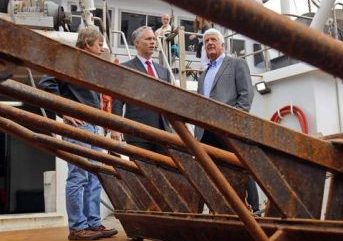 A top House Republican urged President-elect Donald Trump to rescind the Obama administration’s decisions to put millions of acres of land and ocean under stricter federal control by turning them into National Monuments. Utah Republican Rep. Rob Bishop wants Trump to cut back on the amount of land locked up through national monument designations. President Barack Obama has used the Antiquities Act to designate 265 million acres of public land as monuments while in office. “It’s never been done before and that’s why people are saying, ‘you can’t do it.’ Of course you can do it. It’s always been implied,” Bishop said. Read the rest here 13:58
A top House Republican urged President-elect Donald Trump to rescind the Obama administration’s decisions to put millions of acres of land and ocean under stricter federal control by turning them into National Monuments. Utah Republican Rep. Rob Bishop wants Trump to cut back on the amount of land locked up through national monument designations. President Barack Obama has used the Antiquities Act to designate 265 million acres of public land as monuments while in office. “It’s never been done before and that’s why people are saying, ‘you can’t do it.’ Of course you can do it. It’s always been implied,” Bishop said. Read the rest here 13:58
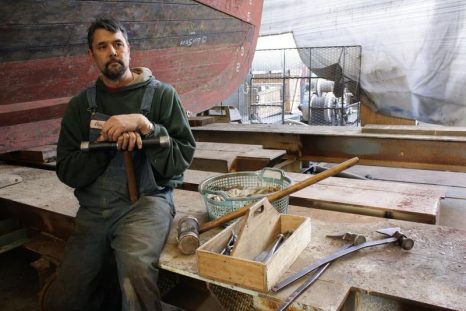
You try telling these old Seattle seadogs their boats need a makeover
The fishing fleet in Washington state is getting older, and it’s due for a big upgrade. A new study says that work could bring in billions of dollars for the state. That could help save the region’s struggling shipyards. But first you’ll have to convince the old fishermen to spend money on their boats. It’s hard to be a shipyard in Seattle. There’s a lot of competition for the land they’re sitting on. “There was a bunch of other smaller yards around here, and they’ve gone away,” said Scott Woodard. He works at Pacific Fishermen Shipyard in Ballard. He fell in love with working on old boats. He mastered an ancient technique where you push strings of tarred hemp into the seams between planks on a wooden boat. “This is caulking,” he explained. But it’s not caulking or corking that pays the bills at this shipyard. Most fishing boats are metal. The real money is in fixing up those boats, doing things like painting and sandblasting. Audio, read the rest here 12:58
American Samoa push to remove marine reserves
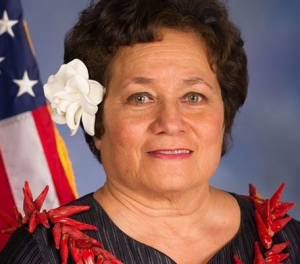 American Samoa’s US Congresswoman, Aumua Amata Radewagen, is pushing for the incoming US Government to overturn President Obama’s decision to create marine monuments in the Pacific. The Remote Islands Monuments comprise the largest marine protected area in the world and encompass commercial fishing areas that American Samoa’s fishing industry regard as vital for its survival. Auma met with Vice President-elect Mike Pence on Thursday. She said she made clear the need for President-elect Donald Trump to rescind President Obama’s executive orders creating and expanding the marine reserves. “So these repeals will be a huge win for us in American Samoa and our fishing community. And I know that the Governor and I are united to reverse these misguided designations.” Link 11:31
American Samoa’s US Congresswoman, Aumua Amata Radewagen, is pushing for the incoming US Government to overturn President Obama’s decision to create marine monuments in the Pacific. The Remote Islands Monuments comprise the largest marine protected area in the world and encompass commercial fishing areas that American Samoa’s fishing industry regard as vital for its survival. Auma met with Vice President-elect Mike Pence on Thursday. She said she made clear the need for President-elect Donald Trump to rescind President Obama’s executive orders creating and expanding the marine reserves. “So these repeals will be a huge win for us in American Samoa and our fishing community. And I know that the Governor and I are united to reverse these misguided designations.” Link 11:31
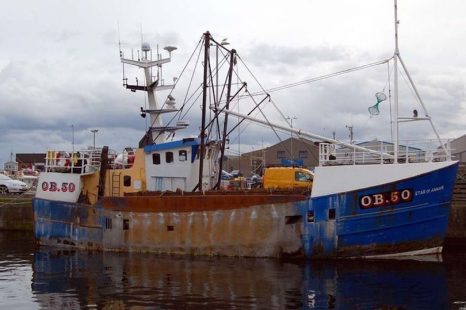
Fishermen fall ill after WW2 chemical bomb they dragged aboard in their nets explodes
A group of fishermen had to be quarantined after a World War Two shell containing chemicals exploded on their boat. The four men had hauled up the bomb in their nets when it detonated. From the Oban-based Star of Annan, the crew were all taken to hospital after the phosphorous inside the shell burst into flames. It was only hours after the potentially lethal explosion when all four of the crew started to feel unwell with chest pains, stomach pains and streaming eyes that the alarm was raised. One crew member, who asked not to be named, told the Record: “The boat took a roll and, whatever happened, the thing went off. If this stuff touches steel it starts fizzing and ignites immediately. Within seconds the smoke was so thick the lads in their bunks down below could not see each other. “They couldn’t even see the ladder to get out. In the space of a couple of minutes the fire had turned the steel white hot. We found out later some crab claws we had on deck near it were completely cooked through. It was intense. Read the story here 10:21
Fishing industry looks to Trump to undo Atlantic marine monument designation
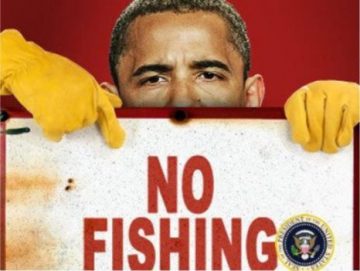 When President Barack Obama announced in September the creation of the first ever marine national monument in U.S. Atlantic waters, 50 environmental organizations claimed victory in the long campaign to protect approximately 4,000 square miles of ocean from fishing and other human activities. Since then, there has been another kind of victory. Donald Trump, once a long shot presidential candidate, will succeed Obama in January. During his campaign, the president-elect made promises to roll back environmental roadblocks to business and to cancel every “unconstitutional executive action, memorandum and order” by the sitting president. While some in the fishing community took heart that Trump might reverse Obama’s decision on the offshore monument, legal experts believe there is little chance of that happening. Instead, opponents of the designation will likely have to use the more difficult and lengthy routes of congressional legislation or litigation to get it changed. Read the rest here 09:58
When President Barack Obama announced in September the creation of the first ever marine national monument in U.S. Atlantic waters, 50 environmental organizations claimed victory in the long campaign to protect approximately 4,000 square miles of ocean from fishing and other human activities. Since then, there has been another kind of victory. Donald Trump, once a long shot presidential candidate, will succeed Obama in January. During his campaign, the president-elect made promises to roll back environmental roadblocks to business and to cancel every “unconstitutional executive action, memorandum and order” by the sitting president. While some in the fishing community took heart that Trump might reverse Obama’s decision on the offshore monument, legal experts believe there is little chance of that happening. Instead, opponents of the designation will likely have to use the more difficult and lengthy routes of congressional legislation or litigation to get it changed. Read the rest here 09:58
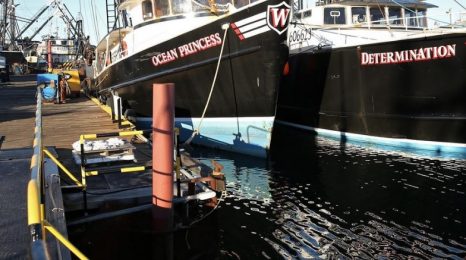
Fairhaven officials cite fishing boat’s bilge in harbor oil spill
State and local officials, along with the U.S. Coast Guard, are investigating a “significant oil spill” in New Bedford Harbor, Fairhaven fire officials said. The Fairhaven Fire Department received a call from town Harbormaster Timothy Cox who reported a significant oil spill on the Fairhaven side of the harbor in the area of the Steamship Authority pier and Warren Alexander wharf. Crews were advised that the Fishing Vessel Ocean Princess had pumped its bilge out overnight while making repairs, Fire Department spokesman Wayne Oliveira said in a news advisory about the spill. An unknown quantity of bilge oil was pumped into the harbor causing a floating oil slick, he said. Crews immediately used booms to contain the floating oil and keep the slick from spreading any farther. Read the rest here 09:40
Boat captain arrested in lobster case
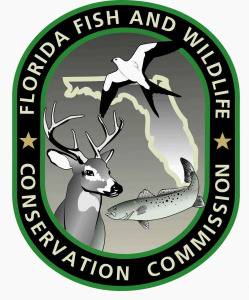 A Marathon commercial fisherman wanted by state wildlife officers for allegedly fishing for lobster with untagged traps turned himself in Thursday after returning from Cuba. Ricardo Hernandez, 52, faces 71 misdemeanor conservation violations. Earlier this month, Florida Fish and Wildlife Conservation Commission officers issued arrest warrants for Hernandez and his mates after surveilling their fishing boat for two months, said FWC Officer Bobby Dube. When the warrants were issued, FWC officers discovered he was in Cuba. Mate Juan Miguel Exposito-Carralero, 46, was also charged with 71 misdemeanor counts. He was arrested last week. Hernandez returned from Cuba recently and turned himself in at the jail, said FWC Capt. David Dipre. The case marks a shift in how some poachers are reacting to the FWC as well as the Florida Keys Commercial Fishing Association’s efforts to quelch trap robbing — they moved to fishing with untagged traps. Read the rest here 09:13
A Marathon commercial fisherman wanted by state wildlife officers for allegedly fishing for lobster with untagged traps turned himself in Thursday after returning from Cuba. Ricardo Hernandez, 52, faces 71 misdemeanor conservation violations. Earlier this month, Florida Fish and Wildlife Conservation Commission officers issued arrest warrants for Hernandez and his mates after surveilling their fishing boat for two months, said FWC Officer Bobby Dube. When the warrants were issued, FWC officers discovered he was in Cuba. Mate Juan Miguel Exposito-Carralero, 46, was also charged with 71 misdemeanor counts. He was arrested last week. Hernandez returned from Cuba recently and turned himself in at the jail, said FWC Capt. David Dipre. The case marks a shift in how some poachers are reacting to the FWC as well as the Florida Keys Commercial Fishing Association’s efforts to quelch trap robbing — they moved to fishing with untagged traps. Read the rest here 09:13
Department of Interior’s final plan abandons oil drilling off Atlantic Coast
 “I am pleased and relieved that the Department of Interior’s final plan abandons its earlier proposal to allow drilling in the Atlantic from Georgia to Virginia,” said Rep. Frank Pallone Jr. (D-6th Dist.), the top Democrat on the House Energy and Commerce Committee. “That proposal was incredibly shortsighted, and would have threatened the ecology and economy, and public health all along the Atlantic coast, including our New Jersey coastline. New Jersey lawmakers of both parties mobilized to fight the original proposal, citing the threat to tourism industry that generates $43 billion annually and supports 500,000 jobs, and a fishing industry that adds $7.9 billion a year to the state’s economy, responsible for more than 50,000 jobs. U.S. Sen. Robert Menendez (D-N.J.) urged President Barack Obama in a Senate floor speech Thursday to permanently put the Atlantic Ocean off limits to oil drilling, which he can do under the Outer Continental Shelf Lands Act. Read the rest here 08:42
“I am pleased and relieved that the Department of Interior’s final plan abandons its earlier proposal to allow drilling in the Atlantic from Georgia to Virginia,” said Rep. Frank Pallone Jr. (D-6th Dist.), the top Democrat on the House Energy and Commerce Committee. “That proposal was incredibly shortsighted, and would have threatened the ecology and economy, and public health all along the Atlantic coast, including our New Jersey coastline. New Jersey lawmakers of both parties mobilized to fight the original proposal, citing the threat to tourism industry that generates $43 billion annually and supports 500,000 jobs, and a fishing industry that adds $7.9 billion a year to the state’s economy, responsible for more than 50,000 jobs. U.S. Sen. Robert Menendez (D-N.J.) urged President Barack Obama in a Senate floor speech Thursday to permanently put the Atlantic Ocean off limits to oil drilling, which he can do under the Outer Continental Shelf Lands Act. Read the rest here 08:42
Jewell Announces Offshore Oil and Gas Leasing Plan for 2017-2022
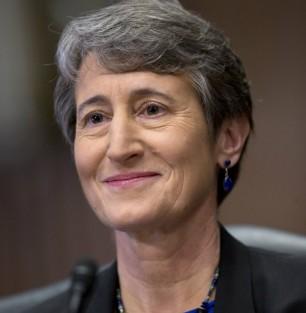 After considering more than 3.3 million public comments and holding 36 public meetings, U.S. Secretary of the Interior Sally Jewell and Bureau of Ocean Energy Management (BOEM) Director Abigail Hopper today released the final plan to guide future energy development for the Nation’s Outer Continental Shelf (OCS) for 2017-2022. The plan takes a balanced approach to best meet the nation’s energy needs by including areas offshore with high resource potential and mature infrastructure while protecting regions with critical ecological resources. The Proposed Final Program offers 11 potential lease sales in four planning areas – 10 sales in the portions of three Gulf of Mexico Program Areas that are not under moratorium and one sale off the coast of Alaska in the Cook Inlet Program Area.Areas off the Atlantic coast are not included in this program. After an extensive public input process, the lease sale that was proposed in the Draft Proposed Program in the Mid- and South Atlantic area was removed during the earlier Proposed Program stage of the process due to current market dynamics, strong local opposition and conflicts with competing commercial and military ocean uses. Read the press release here 16:32
After considering more than 3.3 million public comments and holding 36 public meetings, U.S. Secretary of the Interior Sally Jewell and Bureau of Ocean Energy Management (BOEM) Director Abigail Hopper today released the final plan to guide future energy development for the Nation’s Outer Continental Shelf (OCS) for 2017-2022. The plan takes a balanced approach to best meet the nation’s energy needs by including areas offshore with high resource potential and mature infrastructure while protecting regions with critical ecological resources. The Proposed Final Program offers 11 potential lease sales in four planning areas – 10 sales in the portions of three Gulf of Mexico Program Areas that are not under moratorium and one sale off the coast of Alaska in the Cook Inlet Program Area.Areas off the Atlantic coast are not included in this program. After an extensive public input process, the lease sale that was proposed in the Draft Proposed Program in the Mid- and South Atlantic area was removed during the earlier Proposed Program stage of the process due to current market dynamics, strong local opposition and conflicts with competing commercial and military ocean uses. Read the press release here 16:32
‘Alarm bells ringing’ as Queensland Fisheries Minister responds to scallop stock collapse
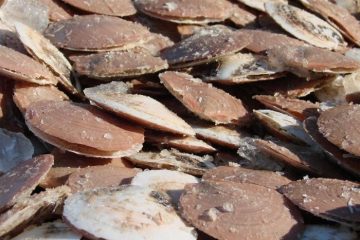 A stock assessment of scallops has revealed critically low numbers off the Queensland coast, just 6 per cent of their original biomass. Catches in the past year are at the lowest level since records began almost 40 years ago. Queensland’s Fisheries Minister Bill Byrne, only six days into the portfolio after the departure of former minister Leanne Donaldson, admits the situation is so dire, the Government had considered imposing a total ban. Instead, it had opted to permanently close a number of ‘replenishment areas’, covering 11 per cent of the scallop grounds, that were due to reopen in January. An annual spawning closure from May 1 to October 31 would also be introduced in an urgent bid to rebuild stocks. Keeping these closed and implementing winter closures were expected to impact on up to 40 per cent of the annual catch, based on recent fishing history. Read the story here 16:04
A stock assessment of scallops has revealed critically low numbers off the Queensland coast, just 6 per cent of their original biomass. Catches in the past year are at the lowest level since records began almost 40 years ago. Queensland’s Fisheries Minister Bill Byrne, only six days into the portfolio after the departure of former minister Leanne Donaldson, admits the situation is so dire, the Government had considered imposing a total ban. Instead, it had opted to permanently close a number of ‘replenishment areas’, covering 11 per cent of the scallop grounds, that were due to reopen in January. An annual spawning closure from May 1 to October 31 would also be introduced in an urgent bid to rebuild stocks. Keeping these closed and implementing winter closures were expected to impact on up to 40 per cent of the annual catch, based on recent fishing history. Read the story here 16:04

Former Deadliest Catch Star Beaten Almost to Death. Then His Big Brother Found The Attackers
Jake Harris, best known as a reality TV fisherman on Discovery Channel’s “Deadliest Catch,” was involved in a brutal mugging this past Saturday in Washington state that left the star with a cracked skull and close to death. Though the police had some information about the attack, they weren’t acting fast enough for Harris’s brother, Josh. Josh Harris, looking to avenge his brother’s violent attack, took matters into his own hands. Josh, upset by a lack of action from the police, asked the community for help. And the community responded. Josh, armed with names, published his information and posted the their photos online. Video, read the rest here 15:32
Alaska’s 2016 commercial salmon season harvest down 15 million fish
 New reviews of Alaska’s 2016 commercial salmon season confirm that it was a rough year for the industry, with the overall harvest of 112.6 million fish having an estimated value of $406.4 million. A year ago the combined harvest of all five species of Pacific salmon in Alaska waters came in at 263.5 million fish worth an estimated $414.2 million. Humpies were the real culprit, even in an even year, coming in way below forecast, so that the overall statewide catch of 39.4 million pinks was worth an estimated $37.8 million, compared with 190.5 million pinks worth $132 million a year ago. In overviews released in early November, Alaska Department of Fish and Game confirmed that preliminary ex-vessel value of salmon harvested in Area M totaled $27,730,204 for a commercial harvest of 9.6 million fish, including 15,345 Chinook, 5,981,217 sockeye, 260,922 coho, 2,883,577 pink and 513,338 chum salmon. The ex vessel value information was generated from fish tickets and does not include postseason adjustments paid to fishermen. Read the rest here 14:35
New reviews of Alaska’s 2016 commercial salmon season confirm that it was a rough year for the industry, with the overall harvest of 112.6 million fish having an estimated value of $406.4 million. A year ago the combined harvest of all five species of Pacific salmon in Alaska waters came in at 263.5 million fish worth an estimated $414.2 million. Humpies were the real culprit, even in an even year, coming in way below forecast, so that the overall statewide catch of 39.4 million pinks was worth an estimated $37.8 million, compared with 190.5 million pinks worth $132 million a year ago. In overviews released in early November, Alaska Department of Fish and Game confirmed that preliminary ex-vessel value of salmon harvested in Area M totaled $27,730,204 for a commercial harvest of 9.6 million fish, including 15,345 Chinook, 5,981,217 sockeye, 260,922 coho, 2,883,577 pink and 513,338 chum salmon. The ex vessel value information was generated from fish tickets and does not include postseason adjustments paid to fishermen. Read the rest here 14:35
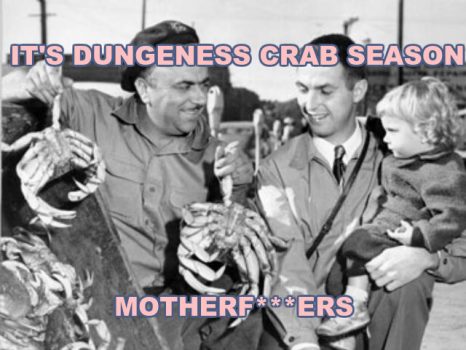
The History Of Dungeness Crab Season In San Francisco
Dungeness crab season is back and in full effect! After a lengthy ban on commercial fishing of the delectable little crustaceans in California, dungeness crab season got back underway this week and restored a cherished San Francisco tradition of chowing down locally caught crab for Thanksgiving and Christmas. (Okay, so there’s a little toxic acid in their guts. The government says the crabs are safe to eat now To celebrate the return of this outrageously delicious seafood that it is outrageously hard to dig out of its shell, the Broke-Ass Fish, Game and Wildlife Commission looks back with fondness on the 170-year history of dungeness crab season in San Francisco. 1848 – CRAB FISHING TAKES OFF! Read the rest here 14:09
Dozens of Icelandic Fishermen Charged with Tax Fraud
 Fifty-seven Icelandic fishermen, who worked for Icelandic fisheries abroad, are suspected of having failed to pay income tax in Iceland, where they resided, Fréttatíminn reports. Their cases comprise more than half of the 108 tax fraud cases connected to the Panama Papers, which are under investigation by the Directorate of Tax Investigation in Iceland. The Directorate has filed charges in a majority of the fishermen’s cases, which are now in the hands of a district prosecutor. The fishermen worked for Icelandic fisheries in Africa, among others, but lived in Iceland. In some cases, tax evasions are believed to amount to tens of millions of krónur. Read the rest here 11:24
Fifty-seven Icelandic fishermen, who worked for Icelandic fisheries abroad, are suspected of having failed to pay income tax in Iceland, where they resided, Fréttatíminn reports. Their cases comprise more than half of the 108 tax fraud cases connected to the Panama Papers, which are under investigation by the Directorate of Tax Investigation in Iceland. The Directorate has filed charges in a majority of the fishermen’s cases, which are now in the hands of a district prosecutor. The fishermen worked for Icelandic fisheries in Africa, among others, but lived in Iceland. In some cases, tax evasions are believed to amount to tens of millions of krónur. Read the rest here 11:24
Chinese owners vow to rebuild Eastern Passage lobster plant
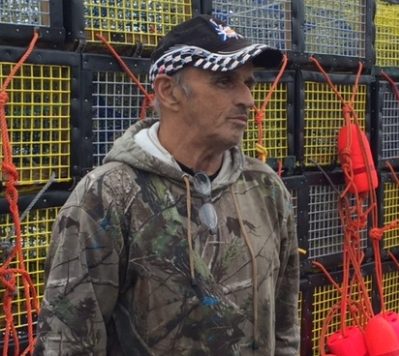 The Chinese owners of the Capital Seafoods plant in Eastern Passage, N.S., say they will repair and rebuild the lobster processing facility damaged in a spectacular fire Wednesday night. “We will carry on. We will be better and stronger, I’m sure,” company manager Jack Liu said Thursday. The fire destroyed the company’s lobster processing facility, he said, but did not affect the live shipment area, which will continue operate. Liu spoke to CBC News minutes after touching down at Halifax Stanfield International Airport, en route to the plant to check out the damage first hand. On the down side the fire destroyed large amounts of bait stored at the facility for traps intended for the upcoming lobster season. “Myself, I had 14,000, 15,000 pounds in there,” lobster fisherman Tom Henneberry said. “It’s terrible. A week before the season, a lot of fishermen put bait in there yesterday and the day before.” Read the story here 10:25
The Chinese owners of the Capital Seafoods plant in Eastern Passage, N.S., say they will repair and rebuild the lobster processing facility damaged in a spectacular fire Wednesday night. “We will carry on. We will be better and stronger, I’m sure,” company manager Jack Liu said Thursday. The fire destroyed the company’s lobster processing facility, he said, but did not affect the live shipment area, which will continue operate. Liu spoke to CBC News minutes after touching down at Halifax Stanfield International Airport, en route to the plant to check out the damage first hand. On the down side the fire destroyed large amounts of bait stored at the facility for traps intended for the upcoming lobster season. “Myself, I had 14,000, 15,000 pounds in there,” lobster fisherman Tom Henneberry said. “It’s terrible. A week before the season, a lot of fishermen put bait in there yesterday and the day before.” Read the story here 10:25
N.J. Recreational fishermen push for pots off state’s artificial reefs
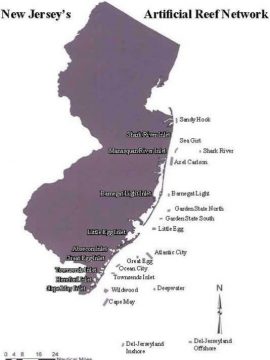 Recreational fishing clubs and divers threw their support behind special management zone status for 13 reef sites at the Mid-Atlantic Marine Fisheries Council public hearing held Wednesday in Toms River. The designation could prohibit the use of any gear on the reefs except hook and line and spear fishing, and the taking of fish by hand. In other words, it would eliminate fish traps principally used by commercial fishermen. A couple lobster men spoke their opposition to any plan that would deny them use of the ocean floor. Greg DiDomenico, the head of the commercial fishing trade group Garden State Seafood Association, said he didn’t doubt the existence of gear conflicts on the reefs but would like to see a compromise made instead. Read the story here 09:45
Recreational fishing clubs and divers threw their support behind special management zone status for 13 reef sites at the Mid-Atlantic Marine Fisheries Council public hearing held Wednesday in Toms River. The designation could prohibit the use of any gear on the reefs except hook and line and spear fishing, and the taking of fish by hand. In other words, it would eliminate fish traps principally used by commercial fishermen. A couple lobster men spoke their opposition to any plan that would deny them use of the ocean floor. Greg DiDomenico, the head of the commercial fishing trade group Garden State Seafood Association, said he didn’t doubt the existence of gear conflicts on the reefs but would like to see a compromise made instead. Read the story here 09:45
New Stormline study reveals what people think of us, based on our jobs
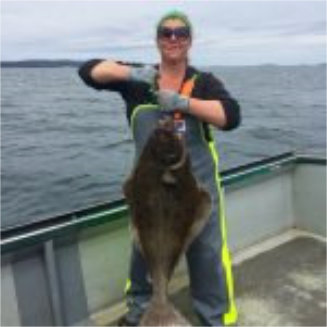 A new study has revealed what people are likely to think of us, based on our job. Using Google autocomplete suggestions for 131 professions, the results reveal a somewhat depressing – and sometimes funny – snapshot of how we perceive one another. The study, launched by Stormline to challenge negative job stereotyping, revealed: Developers are grumpy, designers are pretentious and project managers are important – according to the data Bloggers and YouTubers are viewed as annoying, while writers are viewed as depressed. Case Study – Genevieve Kurilec, commercial fishing captain. Read the rest here 09:18
A new study has revealed what people are likely to think of us, based on our job. Using Google autocomplete suggestions for 131 professions, the results reveal a somewhat depressing – and sometimes funny – snapshot of how we perceive one another. The study, launched by Stormline to challenge negative job stereotyping, revealed: Developers are grumpy, designers are pretentious and project managers are important – according to the data Bloggers and YouTubers are viewed as annoying, while writers are viewed as depressed. Case Study – Genevieve Kurilec, commercial fishing captain. Read the rest here 09:18
North Carolina Wildlife Federation angling for tougher NC rules on shrimp trawlers
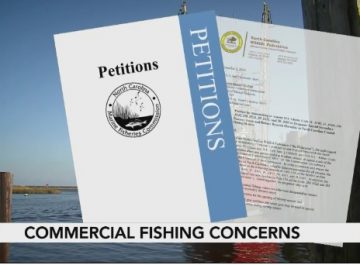 The state Marine Fisheries Commission is considering a petition from the North Carolina Wildlife Federation to adopt regulations for shrimp trawlers operating in coastal sounds that would reduce the size of their nets, limit how long nets could be pulled in the water, permit shrimping only three days per week and eliminate night-time shrimping.The goal of the changes, according to Wildlife Federation officials, is to protect fish nurseries.”We have found doing the research – looking at the science, looking at the data and doing the analysis – that we are losing too many fish to shrimp trawling,” David Knight, a policy consultant for the Wildlife Federation, told the commission. “It’s kind of crazy that it comes up now because we just passed, last year, the shrimp plan,” commission Chairman Sammy Corbett said. One of the proposals would cut the length of the head rope attached to the top of a trawler net from 220 feet to 90 feet, among other restriction. Video, read the rest here 07:57
The state Marine Fisheries Commission is considering a petition from the North Carolina Wildlife Federation to adopt regulations for shrimp trawlers operating in coastal sounds that would reduce the size of their nets, limit how long nets could be pulled in the water, permit shrimping only three days per week and eliminate night-time shrimping.The goal of the changes, according to Wildlife Federation officials, is to protect fish nurseries.”We have found doing the research – looking at the science, looking at the data and doing the analysis – that we are losing too many fish to shrimp trawling,” David Knight, a policy consultant for the Wildlife Federation, told the commission. “It’s kind of crazy that it comes up now because we just passed, last year, the shrimp plan,” commission Chairman Sammy Corbett said. One of the proposals would cut the length of the head rope attached to the top of a trawler net from 220 feet to 90 feet, among other restriction. Video, read the rest here 07:57
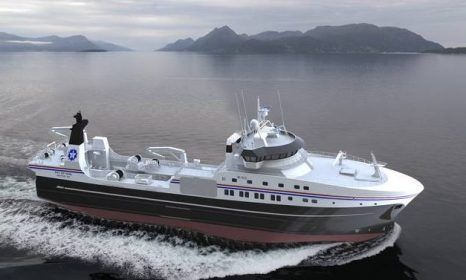
Our opportunity: Modernization of the North Pacific Fishing Fleet
The fishing fleet in the North Pacific and Bering Sea, much of which is homeported here, needs to be replaced. Leaders are pushing for Washington to get its share of that business. Seattle’s homeowners aren’t the only ones getting grayer. The fleet that is the backbone of Washington’s fishing industry is getting older, too. Vessels average 40 years old, although their ages vary widely. Of the 5,000 ships at work off Alaska, 414 of these federally permitted vessels are more than 58 feet in length. A total of 175 were built in the 1970s. Replacing them will be a mammoth undertaking, but the state could see big benefits if it captures some of the action. Mark Gleason of the Maritime Federation said, “Our members see this as a huge opportunity, for ports, shipowners, seafood companies, labor, shipyards, naval architecture firms… It’s one of the biggest opportunities to come to this region in maritime in decades.” Read the story here Read the 63 page McDowell Report Click here 17:59
Sanctuary Idea Flawed – Renee Kelly
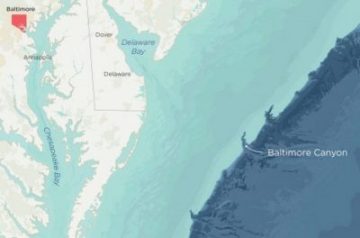 I write in response to the recent story headlined, “Fishing Industry Voices Concern With Possible Offshore Sanctuary Idea; Official Provisions Sought Before Designation Considered.” My husband is a commercial fisherman who used to fish the Straits of Florida. This is exactly the tactics that were used and exactly how the procedure started in Florida. That area, within six months, became a National Sanctuary, closed to all commercial fishing. I am not sure about the sport or recreational fishing. The first article about this in The Dispatch noted something about [the National Aquarium] would allow “appropriate” commercial fishing and recreational fishing in the Baltimore Canyon after this designation (if approved by vote on their website). Who deems what “appropriate” means? They will shut down the entire commercial fishing area regardless. This is the beginning of the end. Commercial fishermen are already taxed, permitted and regulated to near death. Now they will be evicted from their place of work. Read the rest here (scroll down a bit when it opens) 16:18
I write in response to the recent story headlined, “Fishing Industry Voices Concern With Possible Offshore Sanctuary Idea; Official Provisions Sought Before Designation Considered.” My husband is a commercial fisherman who used to fish the Straits of Florida. This is exactly the tactics that were used and exactly how the procedure started in Florida. That area, within six months, became a National Sanctuary, closed to all commercial fishing. I am not sure about the sport or recreational fishing. The first article about this in The Dispatch noted something about [the National Aquarium] would allow “appropriate” commercial fishing and recreational fishing in the Baltimore Canyon after this designation (if approved by vote on their website). Who deems what “appropriate” means? They will shut down the entire commercial fishing area regardless. This is the beginning of the end. Commercial fishermen are already taxed, permitted and regulated to near death. Now they will be evicted from their place of work. Read the rest here (scroll down a bit when it opens) 16:18
Fisheries group wants PEI lobster marketed as Canadian product
 The Eastern Kings Fishermen’s Association is determined to have PEI lobster marketed as a Canadian product rather than specifically Island sourced. The Lobster Marketing Board (LMB) is getting set to promote the sale of the PEI commodity through funds collected through the lobster levy. At the same time the Eastern Kings Fishermen’s Association (EKFA) is putting its support behind the Lobster Council of Canada (LLC), whose mandate is to promote the product regionally. Fishermen who attended Monday’s annual meeting of the EKFA unanimously agreed to make a $6,000 donation to the LCC and buy a membership into the organization, thus having the distinction of being the first PEI fishermen’s local organization to become a member. The motion, put forward by fisherman Michael MacDonald, was in part due to the concern fishermen have over PEIFA marketing PEI lobster on its own over the last couple of years under the Master Lobster Brand. Read the rest here 15:25
The Eastern Kings Fishermen’s Association is determined to have PEI lobster marketed as a Canadian product rather than specifically Island sourced. The Lobster Marketing Board (LMB) is getting set to promote the sale of the PEI commodity through funds collected through the lobster levy. At the same time the Eastern Kings Fishermen’s Association (EKFA) is putting its support behind the Lobster Council of Canada (LLC), whose mandate is to promote the product regionally. Fishermen who attended Monday’s annual meeting of the EKFA unanimously agreed to make a $6,000 donation to the LCC and buy a membership into the organization, thus having the distinction of being the first PEI fishermen’s local organization to become a member. The motion, put forward by fisherman Michael MacDonald, was in part due to the concern fishermen have over PEIFA marketing PEI lobster on its own over the last couple of years under the Master Lobster Brand. Read the rest here 15:25
Editorial: Fish and Wildlife must continue gillnetting on the Columbia
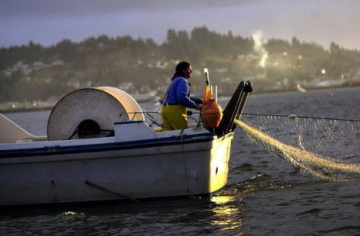 It was good to see at last week’s Oregon Department of Fish and Wildlife Commission meeting in Salem that Lower Columbia River commercial fishermen still have a fire in the belly to preserve their way of life. Jobs that produce original economic value are increasingly precious things in rural America. Salmon have been a source of family income in places like Astoria, Warrenton and Ilwaco, Wash., for generations. Fishermen have invested lifetimes and life savings in the boats, gear, permits and expertise needed to carefully tend gillnets, which have been fine-tuned for more than a century to catch their intended targets while preserving naturally spawning salmon and other nontargeted species. Read the Op-ed here 14:24
It was good to see at last week’s Oregon Department of Fish and Wildlife Commission meeting in Salem that Lower Columbia River commercial fishermen still have a fire in the belly to preserve their way of life. Jobs that produce original economic value are increasingly precious things in rural America. Salmon have been a source of family income in places like Astoria, Warrenton and Ilwaco, Wash., for generations. Fishermen have invested lifetimes and life savings in the boats, gear, permits and expertise needed to carefully tend gillnets, which have been fine-tuned for more than a century to catch their intended targets while preserving naturally spawning salmon and other nontargeted species. Read the Op-ed here 14:24
New Trawl Avoids Cod
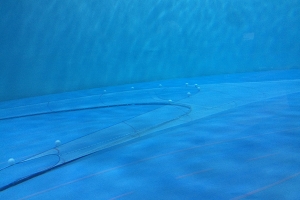 A new fishing net has been designed in New England, US, which avoids catching cod while retaining flatfish, reports Gulf of Maine Research Institute. The net was designed in response to the drastic reduction in catch quotas for Gulf of Maine cod. The reduced quotas have made it difficult to target other species that are more abundant. The ultra low opening trawl (ULOT) has a smaller vertical opening than a typical trawl net; just over 2 feet compared to the 6-foot opening in standard nets. This design allows for cod to swim up and over the net, escaping capture. Read the rest here. – Read more about this – Ultra-Low-Opening Groundfish Trawl Development This project is a collaboration with scientists (Mike Pol – MA DMF; Chris Glass – UNH; Pingguo He – SMAST), fishermen (Jim Ford – F/V Lisa Ann III; Dan Murphy – F/V Bantry Bay, Tom Testaverde – F/V Midnight Sun) and a net maker (Jon Knight – Superior Trawl). Click here to read 13:31
A new fishing net has been designed in New England, US, which avoids catching cod while retaining flatfish, reports Gulf of Maine Research Institute. The net was designed in response to the drastic reduction in catch quotas for Gulf of Maine cod. The reduced quotas have made it difficult to target other species that are more abundant. The ultra low opening trawl (ULOT) has a smaller vertical opening than a typical trawl net; just over 2 feet compared to the 6-foot opening in standard nets. This design allows for cod to swim up and over the net, escaping capture. Read the rest here. – Read more about this – Ultra-Low-Opening Groundfish Trawl Development This project is a collaboration with scientists (Mike Pol – MA DMF; Chris Glass – UNH; Pingguo He – SMAST), fishermen (Jim Ford – F/V Lisa Ann III; Dan Murphy – F/V Bantry Bay, Tom Testaverde – F/V Midnight Sun) and a net maker (Jon Knight – Superior Trawl). Click here to read 13:31
Coast Guard still investigating F/V Alaska Juris sinking
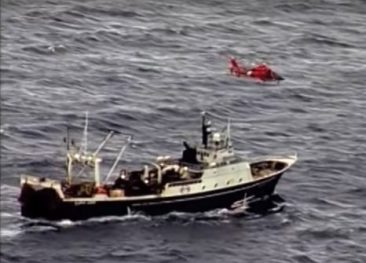 It’s been four months since the F/V Alaska Juris sank in the Bering Sea, and the U.S. Coast Guard is still trying to figure out why its engine room flooded, forcing 46 crew-members to abandon ship near Kiska Island. Lt. Rven Garcia leads the investigations division for Coast Guard Sector Anchorage. He said investigators have scheduled two weeks of public hearings in Seattle to determine why the 220-foot trawler went down. “Since the sinking, the investigation team has identified witnesses and developed theories as to what caused it,” Garcia said. “So the hearing is a kind of public forum to interview those witnesses and fully explore those theories.” Those theories and the names of the witnesses won’t be made public until the hearings in December. But Garcia said there’s a reason the interviews are happening in Seattle. “That’s where the vessel was home-ported, the owners are home-ported there, and a lot of the crew-members are from Seattle,” Garcia said. Read the rest here 13:08
It’s been four months since the F/V Alaska Juris sank in the Bering Sea, and the U.S. Coast Guard is still trying to figure out why its engine room flooded, forcing 46 crew-members to abandon ship near Kiska Island. Lt. Rven Garcia leads the investigations division for Coast Guard Sector Anchorage. He said investigators have scheduled two weeks of public hearings in Seattle to determine why the 220-foot trawler went down. “Since the sinking, the investigation team has identified witnesses and developed theories as to what caused it,” Garcia said. “So the hearing is a kind of public forum to interview those witnesses and fully explore those theories.” Those theories and the names of the witnesses won’t be made public until the hearings in December. But Garcia said there’s a reason the interviews are happening in Seattle. “That’s where the vessel was home-ported, the owners are home-ported there, and a lot of the crew-members are from Seattle,” Garcia said. Read the rest here 13:08
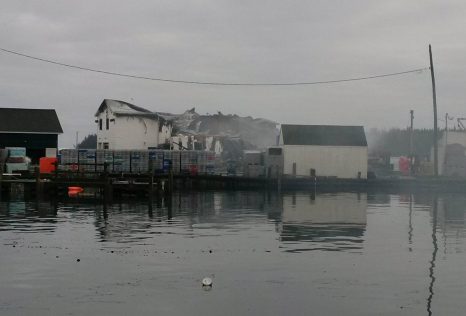
Major fire rips through Nova Scotia seafood plant
A major fire has caused extensive damage at a waterfront fish processing plant on Nova Scotia’s eastern shore. Brad Connors, a division commander with the Halifax regional fire department, said a call came in at about 9:20 p.m. Wednesday that the Capital Seafood plant in Fisherman’s Cove in Eastern Passage was on fire. He said firefighters initially had to stay outside the large structure and douse it with water because of the size of the fire, which quickly spread to the attic and breached the roof. He estimated the building was about 15 metres by 38 metres and contained equipment the international seafood retailer and exporter uses for processing fish. No one from the company was available for comment, but the Capital Seafood website says it does between $10 million and $50 million in sales a year and employs up to 50 people. Atlantic Canada Exports says Capital Seafood produces crab, halibut, lobster, shrimp, swordfish and bluefin tuna, with markets in Asia, Germany, Europe, the States, the U.K. and Canada. Read the rest here 10:21
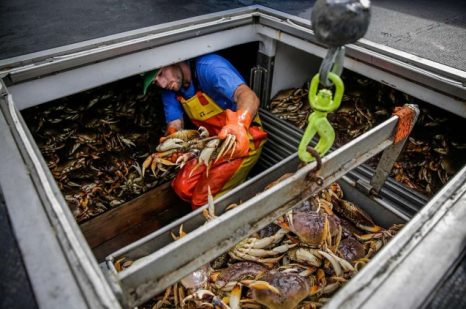
Commercial Dungeness crab season under way in the Bay Area
After a fair amount of nail-biting about whether the season would open on time, commercial fishers brought their first haul of Dungeness crab to Bay Area docks Tuesday afternoon. The shellfish should arrive in restaurants as early as Wednesday and in fish markets later this week, meaning Bay Area families can return to the tradition of celebrating Thanksgiving with platters of freshly steamed and cracked Dungeness crab. Fishers and processors negotiated a price of $3 per pound to fishers, on top of which processors add delivery and labor costs. Crab boats began dropping their pots in the ocean Monday and were allowed to start pulling them up at 12:01 a.m. Tuesday. “There’s some pretty good quality,” said Nick Gunnarsson, a deckhand on the New Rayann, while unloading 8,000 pounds of fresh crab on Pier 45. Read the rest here 09:24

































